This website and blog are moving to a new home! Come visit!
Podcasts and webinars and campus visits, oh my!
Earlier this year while I Poland I had the pleasure of catching up with Dr. Christina Silver of the CAQDAS networking project, virtually, as part of her podcast series. We had a lovely conversation that is now available as one of the episodes on CAQDAS Chat with Christina
Before I headed back to the USA, my Fulbright Scholar mentor, Dr. Joanna Pawelczyk and I were interviewed by Dr. Janet Salmons for Sage MethodSpace. The Fulbright Experience: Crossing the world to learn from and with each other is a wonderful resource for scholars interested in participating in the Fulbright program.
Dr. Jessica Lester and I were thrilled to see our article, Digital qualitative research workflows: A reflexivity framework, published in the International Journal of Social Research Methodology. As the next step in our thinking around digital workflows, it both provides a working definition and situates workflows within the overall concept of ‘technological reflexivity’.
I was able to build on this work in September, 2023 while on the campus of North Carolina State University. Karla A. Henderson Distinguished Professor Corey Johnson of the Department of Parks, Recreation and Tourism Management in the College of Natural Resources invited me to give a doctoral seminar presentation and a half-day workshop to launch the EQUAL faculty learning community focused on qualitative scholarship. This was a ton of fun! Dr. Johnson and I met while we were both professors at the University of Georgia and have remained good friends, collaborators and peer mentors.
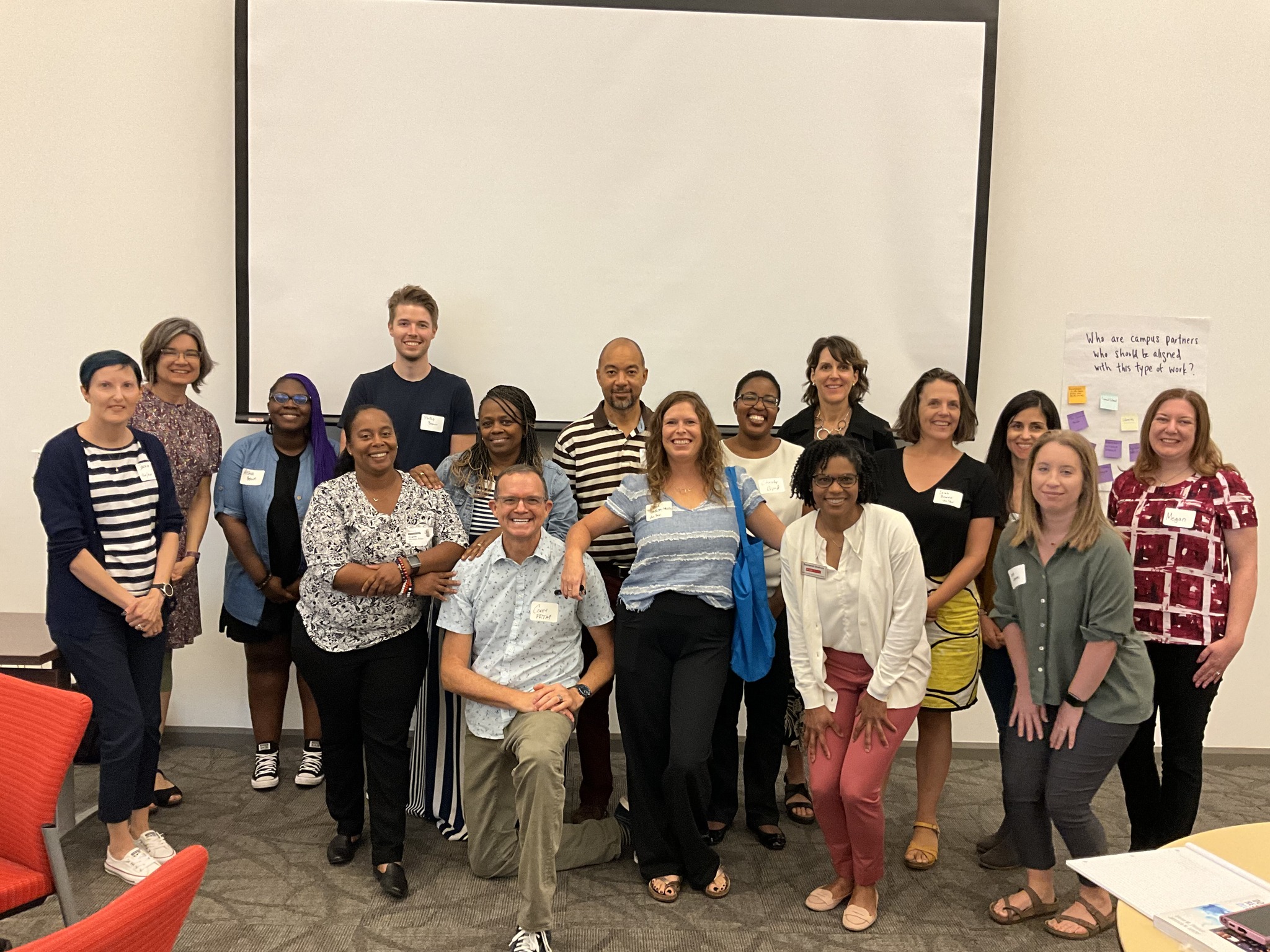

In September, Jessica and I were invited to give a short workshop via Zoom for the University of Maryland-Baltimore County, focusing specifically on social media as a data source and AI-generated transcription workflows. We enjoyed the opportunity to apply our reflexivity framework to these specific workflows.
Finally, in October we will be doing two events, our first live workshop for the INSTAT platform on October 21 and a webinar for the International Qualitative Research Network on October 31.
2023 is simply flying by! Here is a nice write-up that Janet Salmons of Sage MethodSpace shared for us.
Young Linguists’ Meeting in Poznań
I had the privilege of delivering the opening plenary at the Eighth Congress of the YLMP over the weekend.



The audience had many great questions at the end and I enjoyed the event a great deal. Two doctoral students requested mentoring sessions with me, and I was invited to provide a 90 minute ATLAS.ti workshop on Sunday. The opportunity to meet scholars from all over the region and learn about their research was an invaluable opportunity.
If you haven’t already, check out this upcoming Ohio State University workshop:
Join us for this year’s Advanced Methods Institute, a virtual conference sponsored by The Ohio State University College of Education & Human Ecology focusing on Advancing Qualitative Inquiry toward Innovation, Equity, Diversity, & Justice from June 7-9, 2023! Registration is open to the public.
Presentations and publications and workshops, oh my
I can’t believe that my time here in Poland is halfway over. A few weeks ago I had the pleasure of giving the lecture at the TechMedComm inaugural meeting. It was the first chance I had to present the findings of our analysis of the final OSCEs for the communication skills for health professionals course, and the talk inspired a variety of questions and great discussion. I was also able to accompany the group to the medical school’s simulation lab and tour the facility and observe how they run their OSCEs.
Last week I gave my lecture as part of the Distinguished Professor series and shared the current work we are doing around reflexivity and digital workflows. David was still here for his visit, so it was nice to have him in the audience as well.


The introduction and some of the articles in our special issue on digital workflows Qualitative Inquiry are now available online first. It was such a pleasure to co-edit this issue with Dr. Jessica Lester, who was here visiting in Poland last month, and to work with all of these authors.
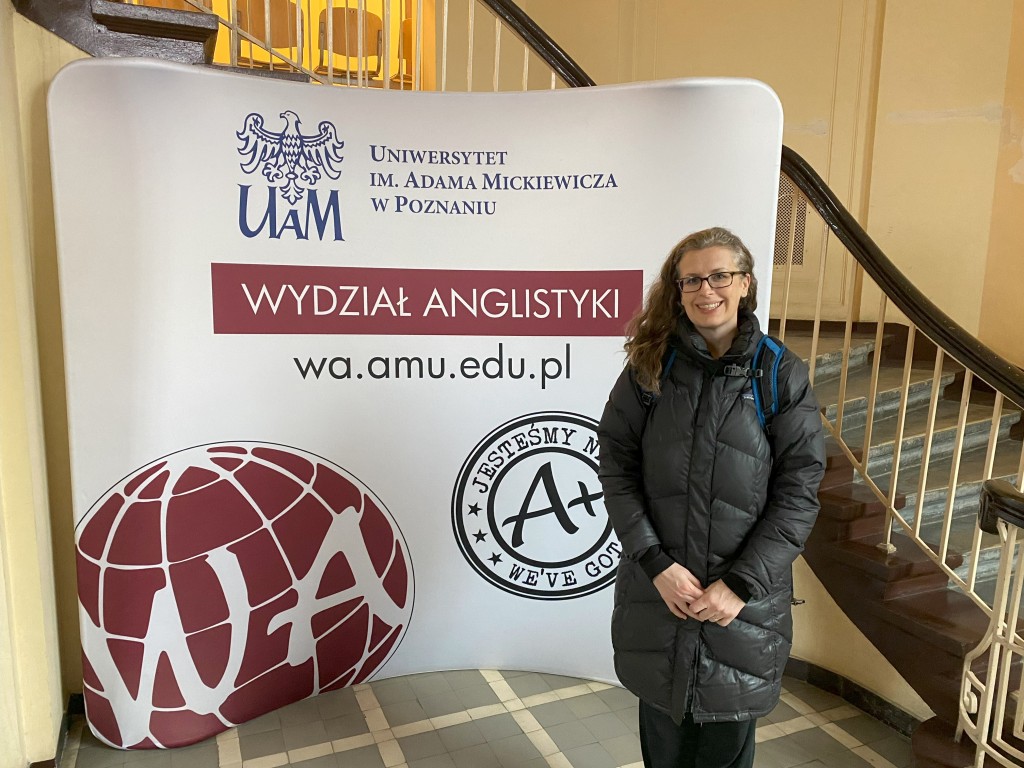
Sage has put together a glimpse of the digital workflows segment that I filmed last year for their methods collection. I have not had the courage to watch it myself yet…but hopefully it is relatively coherent.
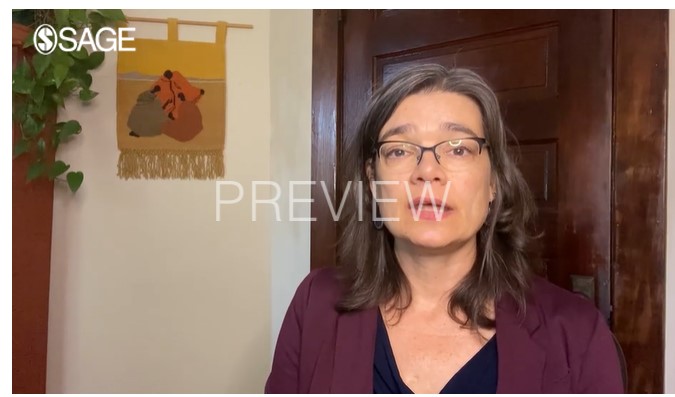
May and June will also be busy. I will be presenting one of the plenaries and a workshop at the Young Linguists’ Meeting in Poznan. Dr. Lester and I will also be presenting a workshop at the Ohio State University’s QUALLAB’s Advanced Methods Institute in June.
And, of course, I have been enjoying taking Polish classes, eating a lot of amazing food, hosting visitors, and traveling a bit around the country. (For more on those adventures, visit my personal blog.)
The time with Fulbright Poland has begun
The research team was really excited to see these study findings out in this open access journal. I’ll be presenting this research (co-authored with Alicia Williams, Rick Hess, Jessica Nina Lester and Hebah Al-Khateeb) at the Young Linguists Meeting in Poznan in May as part of my Fulbright Association work.
I’ve settled in nicely here in Poznań and enjoyed visiting Gdańsk for the Fulbright mid-year meeting. It was my first time to see the Baltic Sea. A visit to the European Solidarity Centre/Europejskie Centrum Solidarności is highly recommended.




QDAS as part of a digital research workflow
Happy to see this one out in the world – an overview of how qualitative data analysis software can serve as a hub for the entire digital research workflow in the context of human resource development.

Visiting researcher at the University of Innsbruck
I am on my way home after spending a few days in Austria as a visiting researcher in the doctoral college #OrganizingtheDigital at the University of Innsbruck.
This doctoral college, created in 2018, features faculty researchers and PhD students from the management program and other disciplines around campus. The aim of the doctoral school and its grounding in organization theory, media- and communications studies, consumer culture theory, labour market and general management theories is to bridge and transcend multiple digital phenomena in society. The emphasis on digital relations, digital publics and digital societies represents its transversal perspective on digital dynamics.
Methodologically, the doctoral college takes a multi-method and inter-disciplinary lens and advances conceptual research, experimental, qualitative, and interpretive studies, as well as related quantifications and network analyses of digital texts, visuals, and behavioural patterns of digital relations, publics, and societies.
Every winter term, the doctoral college invites researchers with particular knowledge and expertise in digital phenomena for a short methods course. This year I had the pleasure of being the featured scholar and facilitating an intensive three-day digital research methods course for a small cohort of Ph.D. students on “Analyzing Online Conversations: A Research Framework.” I also gave a public lecture on the topic, “Creating Digital Qualitative Research Workflows.”
Innsbruck was a stunning location for this experience, and I am now even more excited for my semester in Poland next year!
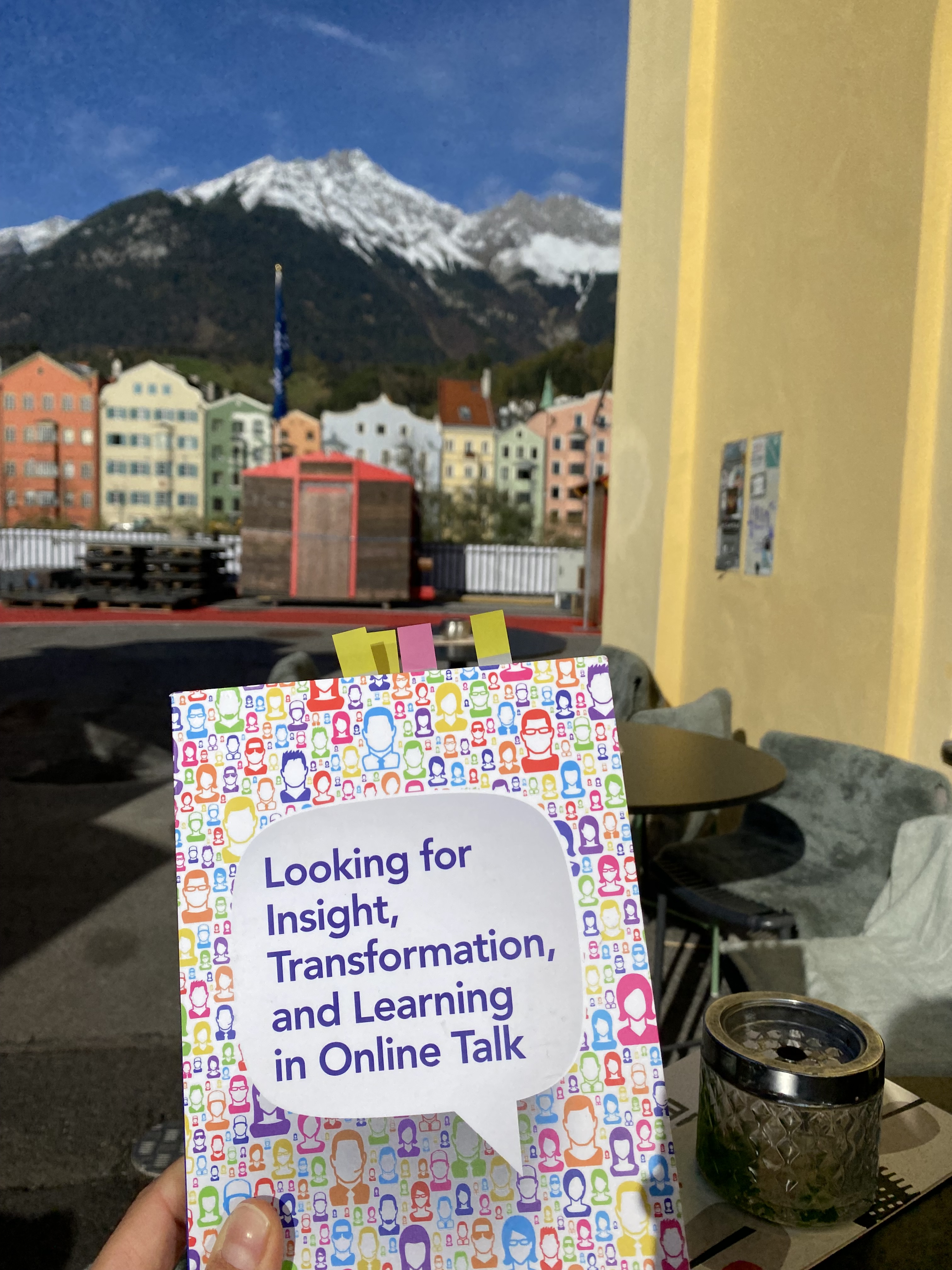

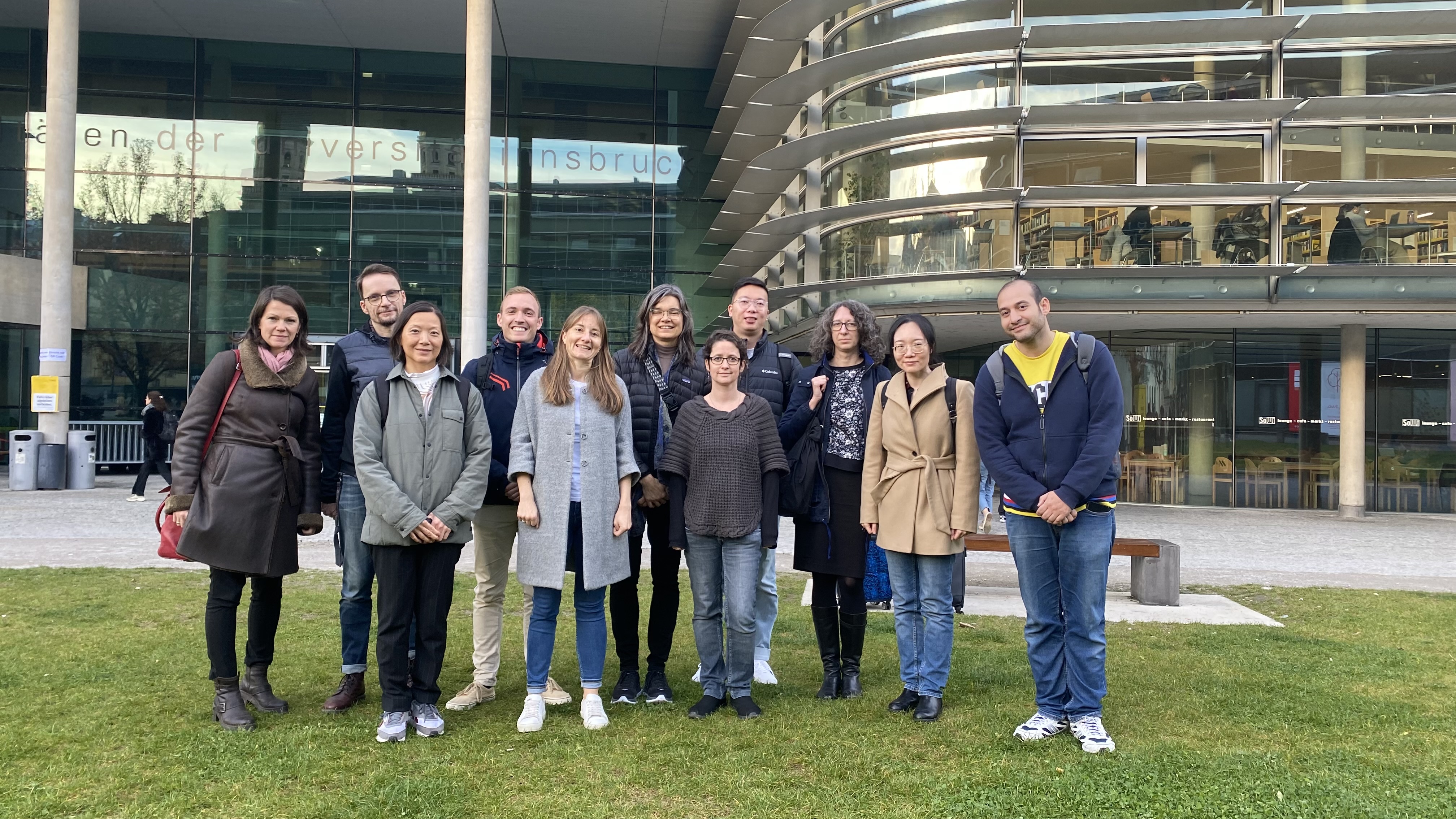
Last chance for creating digital workflows & a new workshop coming in October!
We are offering our Creating Digital Research Workflows workshop online for a final time on September 16 – you can find details and a link to registration here.
We are excitedly working on a new workshop, Creating Transcription Workflows for Recorded Qualitative Data, that will be fully online via Indiana University on October 14. More details here.
Hope to see you there!
Indiana University workshop
Here’s a short blurb about our workshop IN PERSON in Bloomington last week! There are still some spaces for the virtual version taking place on June 3.
Heading to Poland in 2023
Some exciting news – if all goes as planned, I’ll be heading to Poland in February for a few months as a Fulbright Distinguished Scholar.